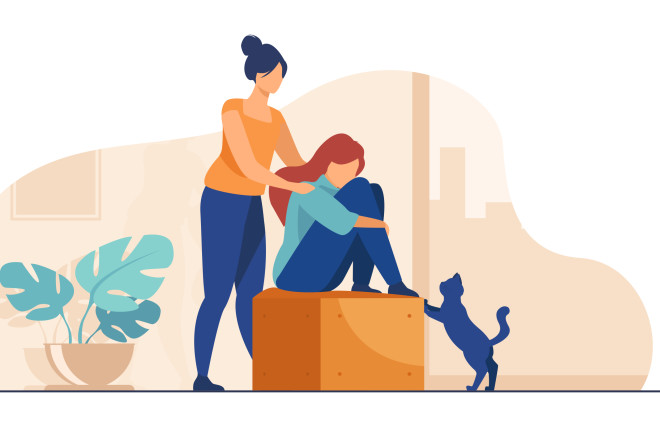The holidays are underway, and for many people that means anxiety. But for some, anxiety is a year-round guest — and an unwelcome one. According to the National Institutes of Health, 31 percent of U.S. adults will suffer from some kind of anxiety disorder at some point in their lives, with females and people under 40 at a slightly higher risk.
Most of us feel some anxiety from time to time — and that’s perfectly normal. In fact, it’s probably adaptive. Some evolutionary biologists have suggested that a certain amount of anxiety can sharpen your sensitivity to potential danger, making it more likely that you’ll take steps to prepare for trouble.
The problem is that the system can go haywire, causing more anxiety than is beneficial. That’s especially troublesome in today’s world, where we seem to face potential threats every time we check our news feeds.
Read more: Anxiety and Depression Relief, No Therapist Required
What is Anxiety?
The American Psychological Association defines anxiety as “a future-oriented, long-acting response broadly focused on a diffuse threat.” For example, worrying about storms is normal, and can motivate you to prepare a safety kit and a safe space in your home for severe weather. But continually worrying about something you a can’t control can be problematic.
Anxiety comes in several types. Here are a few of the most common forms of anxiety.
Generalized Anxiety Disorder:
People with this disorder worry about the same things everyone else worries about — work, family, money or if they’ll test positive for COVID-19. But they worry excessively, enough that the worry can interfere with daily life. And the worry can go on for months or even years.
Some of the symptoms are sleep problems, feeling edgy or not being able to shut off troubling thoughts. But other symptoms are more surprising. Anxiety can cause headaches, stomachaches, or other unexplained pain. It also can cause you to tire easily and have difficulty concentrating.
When the anxiety is specifically related to social situations, it’s called social anxiety disorder. People with this disorder can become extremely anxious in social settings and are unable to take part in the fun even if they want to. They may fear that others are watching or judging them, or fear they’ll say or do something embarrassing. And it’s not just wanting to avoid parties.
For those with extreme cases of social anxiety, it can be difficult to go to work or school or even go out for shopping. Besides feeling self-conscious, people with social anxiety disorder can experience a racing heart, blushing, sweating, trembling and stomachaches.
Panic Disorder
Panic attacks that come on without warning characterize panic disorder, often with no obvious cause or trigger. These attacks often feature intense fear and/or a sense of being out of control.
Panic disorder can cause a racing heart, sweating, nausea, chest pain, and a feeling of impending doom. It’s not uncommon for people having a panic attack to fear that they’re having a heart attack.
Phobias
People with phobias have intense fears and great anxiety about certain things or situations. While it’s perfectly normal to be afraid of certain things — cobras, for example — people with phobias experience fear and anxiety out of proportion to the actual danger.
In some cases they can’t even think about whatever it is they’re afraid of without experiencing intense anxiety. Common phobias are fear of heights, flying, spiders, snakes, blood and confined spaces.
How Can You Treat Anxiety?
Fortunately, anxiety disorders can be treated. Psychotherapy and cognitive behavioral therapy are beneficial. There is no medicine that will cure anxiety, but some are quite good at relieving symptoms.
There are things you can do on your own to help with anxiety, too. A large population-based study found that exercise can be a powerful antidote to anxiety. Mindfulness and meditation have also proved useful in getting anxiety under control, according to several studies. If these don’t help, be sure to talk with your healthcare provider.


Social Anxiety Disorder